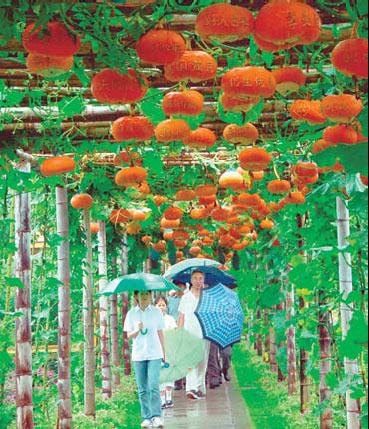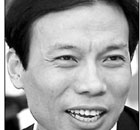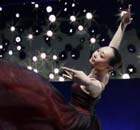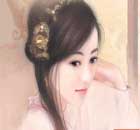Economy
Zhejiang: Grounded in sustainability
By JIN ZHU (China Daily)
Updated: 2010-05-01 09:19
 |
Large Medium Small |
HANGZHOU - Sitting on the south bank of Shanghai's Huangpu River, a two-story building is destined to be the focus of an economy based on ecological and healthy development.
The 13-meter high and 1,500-square-meter building is built to mimic Tengtou village in Fenghua of Zhejiang province. Touted as the only rural example on display during Expo 2010 Shanghai, the model will present how villagers live their lives in an eco-friendly way and showcase the interaction between cities and villages.
 Villagers enjoy a stroll in Tengtou village of Zhejiang province, the only rural example on display at the Expo. Provided to China Daily |
Located 6 kilometers from downtown Fenghua, Tengtou village was once an infamously poor village. But dramatic changes have taken place since 1965 when the village went all out to develop its agricultural economy.
"In the mid-1980s, the village successfully transformed its traditional agriculture into comprehensive agriculture and achieve high-yield tracts, such as planting trees on channels and planting grapes beside fishponds," said Xu Mengting, director of the information office in Fenghua.
During the same period, the first clothing factory started operations in the village. Up to 60 enterprises of clothing, flowers and plants are now established in the area. In 2009, the gross annual value of the village, which has only 830 villagers, hit 4.02 billion yuan ($591 million).
"It is a truly harmonious village without poor people. Everyone has jobs and can earn money by themselves," Xu said.
Currently, all villagers can live in modern villas with electric appliances, cable TV and broadband Internet access. They can also receive medical insurance and education funds like most urban residents.
"If it only paid attention to its economic development, the village could not have become a national model of an ecological environment," Xu said. "Luckily, the village leaders attached great importance to environmental protection from the start."
As early as 1993, a special committee of environmental protection was set up to monitor investments and adopted a voting process for all projects that would cause pollution in the village.
"It really needs courage, to refuse investment when the whole country is focusing on economic development. However, we believe that beautiful mountains and fresh water are as precious as gold," Xu said, adding that since then, more than 50 projects that offered both economic benefits and pollution have been rejected.
Now, when visitors step into the village, they will find ecological considerations at every corner, including toilets that can save about 9,500 tons of water every year and lighting with solar energy so that no electrical wires can be seen in the village.
The beautiful scenery and outstanding ecological environment have attracted so many visitors that tourism has become a major industry for the village.
"I can earn about 270,000 yuan every year from my strawberries garden, as more urban visitors come here on weekends," local farmer Zheng Haiming said of his pesticide-free draw.
CHINA DAILY







